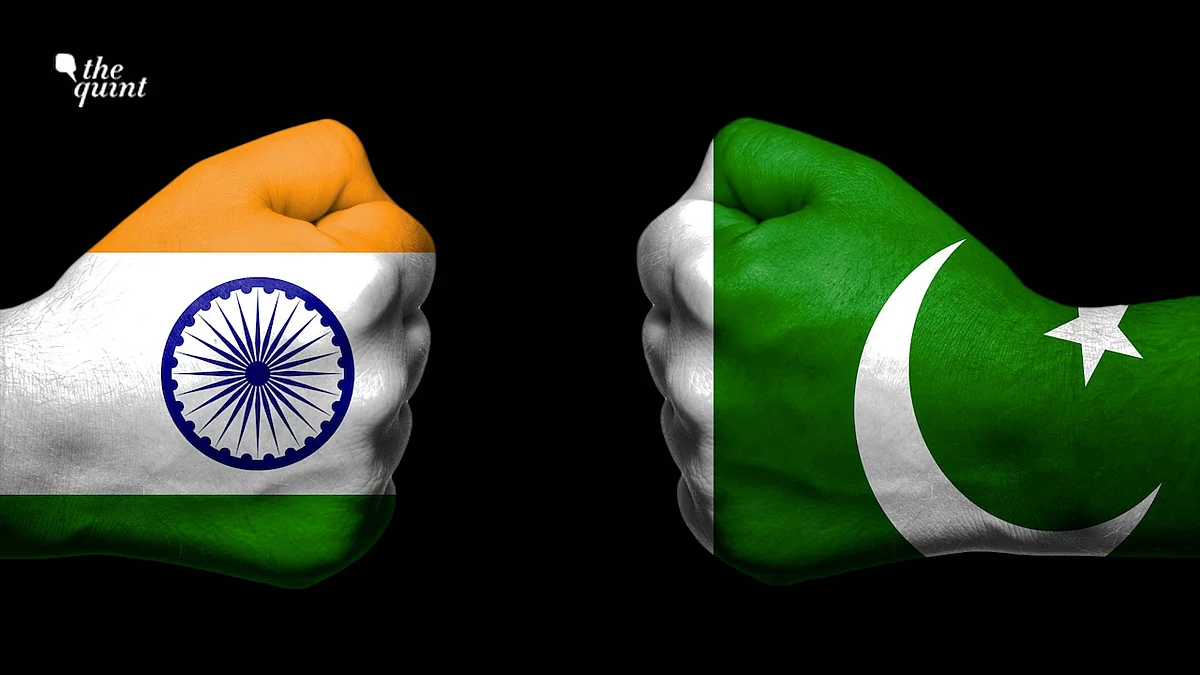
Pakistan’s Letter on J&K to UN: Will It ‘Exploit’ Arab Concerns?
Will Pakistan succeed this time in exploiting rare ‘Arab concern’ over plight of Muslims in India?

advertisement
Pakistan has filed another letter with the UN Security Council on Jammu & Kashmir, accusing India of taking advantage of the pandemic to engineer ‘demographic flooding’ in the region. It is the ninth such letter since last August.
Signed by Pakistan Foreign Minister Shah Mahmood Qureshi, and delivered to the UNSC president, the letter claims that new rules announced by the Indian government under the ‘J&K Reorganisation Order 2020’ are ‘particularly reprehensible’ at a time of a global health crisis.
The rules allow Indian citizens to get domicile status in J&K if they have lived there for 15 years. Qureshi claims that the move is part of the ruling party’s ‘sinister’ Hindutva agenda, comparing it to the Israeli policy of engineering Jewish settlements in occupied territories.
Only a Matter of Time Before Pakistan Exploits ‘Rare Concern’ of Kuwait, UAE, Saudi Arabia
The letter dated 10 April also blames India for 900 ceasefire violations and ignoring the call for a global ceasefire by the UN Secretary-General Antonio Guterres among other claims that Pakistan regularly makes against India. The letters have become more frequent since India revoked Article 370 in August 2019 and bifurcated the state.
The only result has been two ‘informal’ and substance-free discussions in August and January 2020.
Pakistan is not expected to give up the habit, say observers, and may even try to envelop India’s entire Muslim population in its ‘Kashmir game’ by saying that Islamophobia is on the rise, given the recent developments involving six Indians in the UAE who have been sacked or suspended for indulging in hate speech.
A 9 March letter by Pakistan to the UN secretary-general castigated various Indian leaders for their rhetoric on ‘de-radicalisation camps’ for Kashmiri youth, claiming that the Indian armed forces could make Pakistan ‘bite the dust’ in a short time, and talking about assuming ‘physical jurisdiction’ of Pakistan-Occupied Kashmir and Gilgit-Baltistan.
Pakistan’s Attempts to Link J&K to Palestinian Situation Could Cause Trouble
UN observers say that Pakistan generally uses three main props to keep the Kashmir pot boiling in the UN – international law (disputed territory); threat to peace and security (ceasefire violations, nuclear threat); and human rights. “If one fails, they go to the next. It’s a cycle,” said one official familiar with the rinse-and-repeat method.
But the latest letter, which some have called ‘3+’, has raised concerns because it goes beyond the normal remit.
It could be the first step to moving beyond J&K and linking it to Indian Muslims in general being under threat, analysts said.
The groundwork was laid in the flurry of letters that came in August 2019 after India changed the status of J&K. In a letter dated 13 August, Qureshi used highly inflammatory rhetoric about Indian actions leading to “ethnic cleansing and genocide”, recalling Srebrenica and Rwanda.
India Must Handle Ground Situation With Sensitivity & Foresight
The stigmatisation of the Muslim community as ‘super-spreaders’ of the coronavirus after the Tablighi Jamaat incident in India, has given anti-India forces much fodder.
Pakistan is expected to push Arab envoys harder in light of the developments in UAE where at least six Indians have either been fired or suspended from their jobs for anti-Muslim remarks on social media.
Although the BJP leadership appears to be waking up to the serious side effects of communalism on India’s diplomatic and economic relations with family elders suddenly remembering India’s storied past of ‘tolerance and syncretism’, India must handle the ground situation with great sensitivity and foresight.
(The writer is a senior Washington-based journalist. She can be reached at @seemasirohi. This is an opinion piece and the views expressed are the author’s own. The Quint neither endorses nor is responsible for them.)
- Access to all paywalled content on site
- Ad-free experience across The Quint
- Early previews of our Special Projects
Published: 07 May 2020,08:09 AM IST